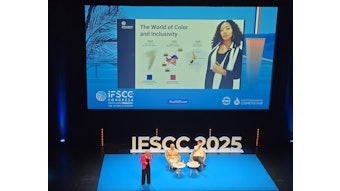The beauty industry thrives on change, so it should come as no surprise that any business associated with the industry would also find itself in a period of rapid change. This certainly is the case for testing labs. Over the past five years they have been called upon with increasing frequency to help cosmetic marketers get products to store shelves faster and are responding along with their customers to an ever-changing global regulatory scene.
Going Global
“With the advent of all the new regulations in Europe and the world, there is much more pressure on manufacturers to test well,” said Craig Weiss, president, Consumer Product Testing Company, a private contract testing laboratory that designs and implements testing programs for cosmetic, pharmaceutical, medical device and specialty chemical industries. He has seen a gradual increase in requests for tests to meet European regulations as well as for products making multiple claims. “We have to be more cutting edge,” he said, as far as the services it delivers, to respond to customer needs. “We may develop methods, but the driving force comes from industry.”
Rich Ulmer also has seen a need to respond to the globalization of business. Ulmer, president and CEO of InVitro International, a provider of nonanimal ocular and dermal test systems, said “In the past five years, we have truly globalized our business; we have a European technical and training center thanks to a farsighted investing partner whose core business was and still is ‘cosmetics raw materials developer, manufacturer, and supplier.’ ” InVitro is represented by Res Pharma in 22 countries, and can train European companies in Europe to bring in vitro testing into their own plants. Several larger companies have done this for reasons of speed, cost and confidentiality, according to Ulmer, reinforcing the idea that those needs are now universal.
Ulmer believes the overall business climate has been strong over the past four years with small but steady increases in acceptance of nonanimal testing. “There is at least one other exogenous factor at work favoring nonanimal testing: the ever-increasing cost of ‘caring and reporting’ in an animal testing laboratory.”
Speed to Market
Getting to market ahead of the competition and keeping things new and fresh for consumers are undisputed driving forces in the cosmetic industry today. Testing labs offer critical services, and are therefore being called upon to respond to the industry’s need for speed. “In the last three years, we have had many more conversations with customers who want to introduce products to market faster than at any time in my 11 years with InVitro International,” said Ulmer. The company now offers an expedited lab service offering 24-hour endpoint results.
Weiss concurs that most contract labs offer some sort of priority or rush service. Jay LeCoque, CEO of Celsis International, a provider of rapid diagnostic systems and laboratory services, said speed is what it’s all about. “Our business is in helping our customers increase their speed to market. By offering ever faster tests that can reduce the time it takes to release a product for sale, we are helping our customers in the drive for improved supply chain management.” Better supply chain management means faster speed to market, and this also helps customers better manage relationships with their large retail chain demands, said LeCoque.
Businesses in general have been working to improve their understanding of supply chain dynamics, managing the flow of information, material and finished product to improve processes and increase profits. The beauty industry is no exception.
“We now understand that faster product release also means that our customers can reduce the amount of safety stock held in their raw materials inventory,” said LeCoque. “In addition, we help control the cost of a potential contamination by reducing the amount of product at risk that potentially may have to be disposed.” When there is a contamination, the benefits of rapid microbial detection may mean manufacturers don’t have to wait another three to five days to determine if their second batch is safe to release. LeCoque reports that customers who fully understand the significant financial impact of faster testing have implemented his firm’s technology the most quickly.
It has become clear to Ulmer, too, over the past few years, that the development and formulation of new products is a significant part of the cosmetic industry business model that can be shortened in time and made less costly through the use of improved screening models. He has several large clients using InVitro’s Irritection Assay System in house to screen multiple formulations in 24 hours, allowing them to take only the least potentially irritating formulations to human clinical trial much more quickly.
Improving Service
Helping customers increase speed to market is only one area in which testing labs are improving service to cosmetics marketers. From the downright practical to the more product- and service-specific, testing labs want to work with customers to improve service.
Some customers see testing as a necessity, and others have an understanding of the business value of screening materials and products. The competitive edge to be gained from having solid claims to put on the label and put in their advertising is important. “Claims support is huge,” said Weiss. He encourages marketers to bring testing labs into the picture at the product planning stages to help understand what the marketer is looking for in terms of claims and define which tests will best help establish those claims. A big factor in meeting deadlines is in having a clear understanding of the claims customers seek. “They have to know what they’re looking for,” Weiss said.
“Today, everyone is looking for antiaging claims,” he said, “but antiaging is not a claim you can make.” Instead, a testing lab can help marketers set up tests to measure things such as skin elasticity and texture. Marketers can help themselves by working to understand how contract research organizations work, claims that can and can’t be made, and the tests required to support those claims—practical matters that can make the testing process more efficient.
“If I could wave a magic wand and eliminate one concern that would help improve service to our customers, it would be that we gain immediate (global) regulatory agency support for nonanimal testing, so that the industry could use a faster, less expensive premarket screening approach without anxiety over inconsistent regulatory reviewer responses,” said Ulmer.
For LeCoque, improving customer service means improving his firm’s ability to encourage a multifunctional approach to assessing the financial value of rapid testing. “Quite often it is QA (quality assurance) that is tasked with looking at a rapid test method,” said LeCoque. “QA is very important, as the actual testing will be done within a QA lab. But at times, QA does not have the larger perspective to understand the full financial impact a move to rapid methods can have on its entire operation.”
Delivering Results
Every testing lab and test method manufacturer offers something different to serve a broad range of customers, but all agree that safety and quality should be everyone’s top considerations. So, whether you are looking for claims substantiation, quality assurance or regulatory compliance, there is a contract research organization out there that understands the pressures and challenges marketers face and is there to face them with you.










